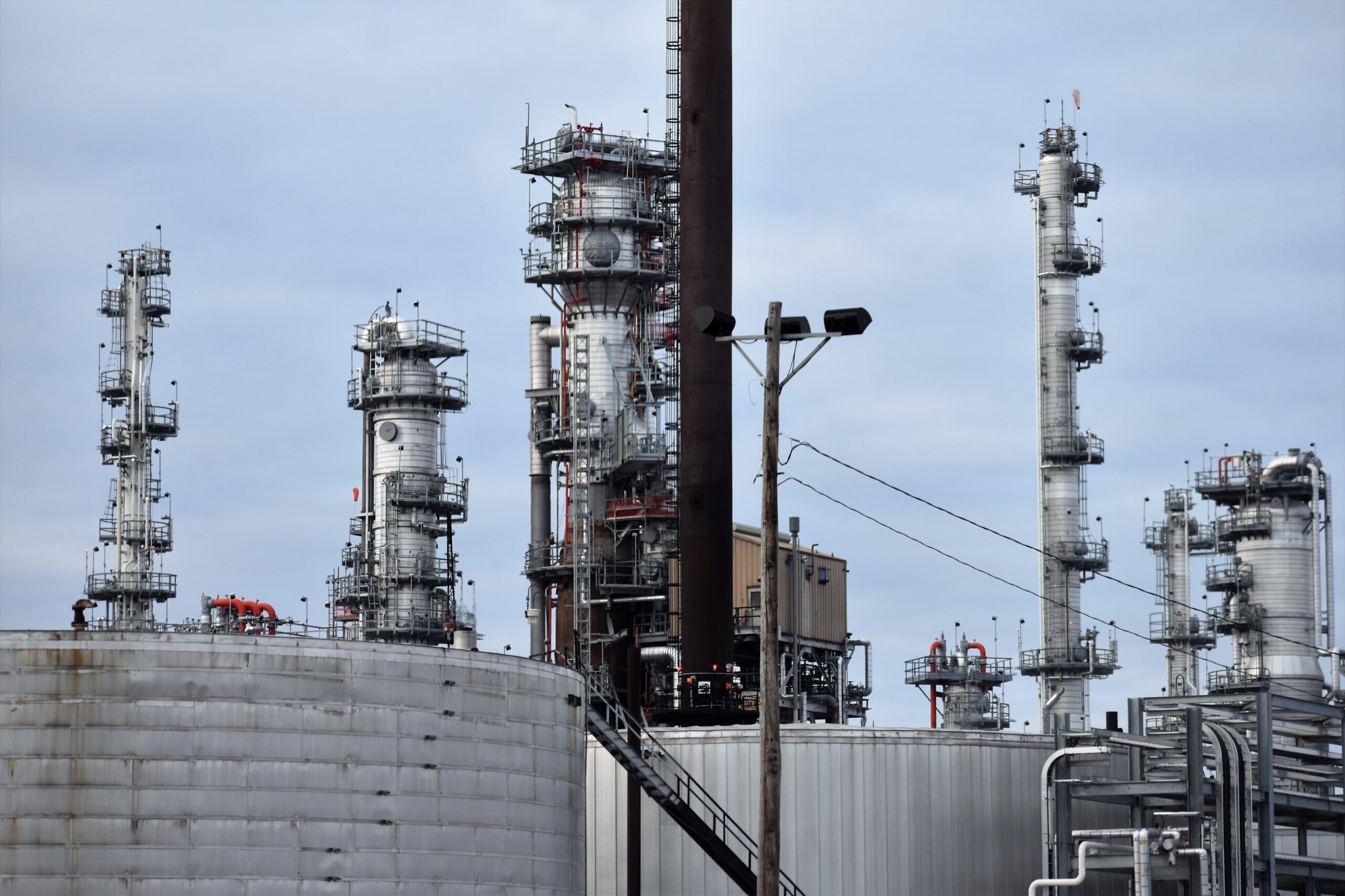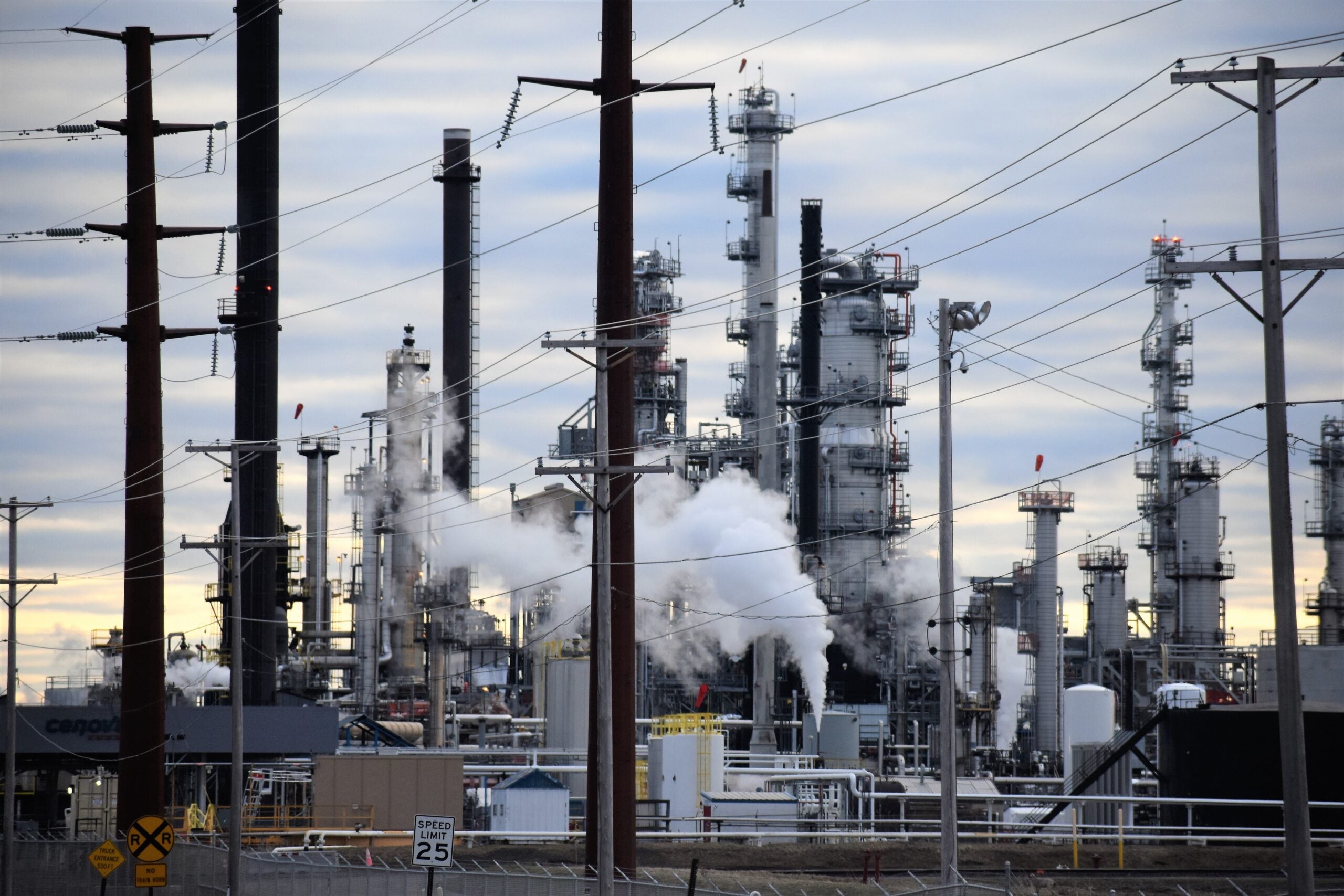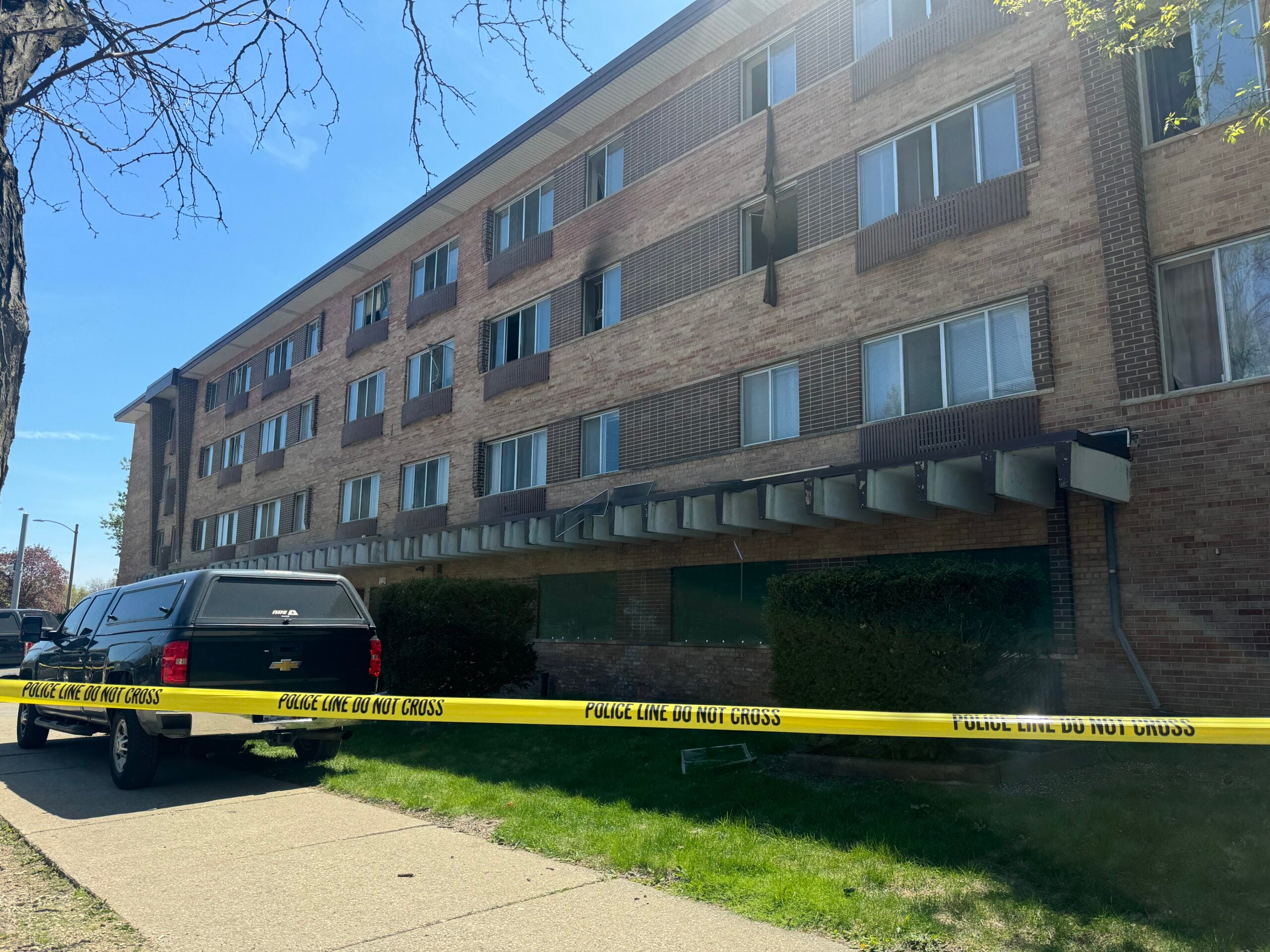After an explosion five years ago, Wisconsin’s only oil refinery is starting up in Superior after a $1.2 billion effort to rebuild the facility.
On April 26, 2018, an explosion at the refinery and subsequent fires injured three dozen workers and caused thousands of people in the city to temporarily evacuate. In March, the refinery — now owned by Calgary-based Cenovus Energy — began introducing crude oil, according to Doreen Cole, the company’s senior vice president of downstream manufacturing. Cenovus said Wednesday the refinery is on track to resume full operations by the end of June.
“Everyone is certainly looking forward to getting back to business,” Cole said during a conference call Tuesday.
News with a little more humanity
WPR’s “Wisconsin Today” newsletter keeps you connected to the state you love without feeling overwhelmed. No paywall. No agenda. No corporate filter.
The cost to rebuild the refinery tripled from initial projections, and it took years longer than expected due to the COVID-19 pandemic.
A final report released by the U.S. Chemical Safety Board in December found the refinery’s lack of safeguards during a maintenance shutdown led to the explosion. Investigators found the refinery failed to take steps to prevent air from mixing with flammable hydrocarbons in its fluid catalytic cracking unit, which is used to make gasoline. The report also cited a severely eroded slide valve, which had been known to leak.
The board made 16 recommendations to improve safety, most of which applied to the refinery and Cenovus. They included creating safeguards to prevent explosions in its fluid catalytic cracking unit and developing a program to ensure the mechanical integrity of slide valves. Cole said the company is committed to incorporating all recommendations, but Cenovus didn’t provide specific timelines for implementing them.
Superior Mayor Jim Paine said he’s working with the Superior Fire Department to ensure the recommendations are implemented to the city’s satisfaction.
“And that we understand fully all of the new safety protocols and procedures, especially in the event of any incident, which we hope won’t happen,” Paine said. “But we need to be prepared anyways.”
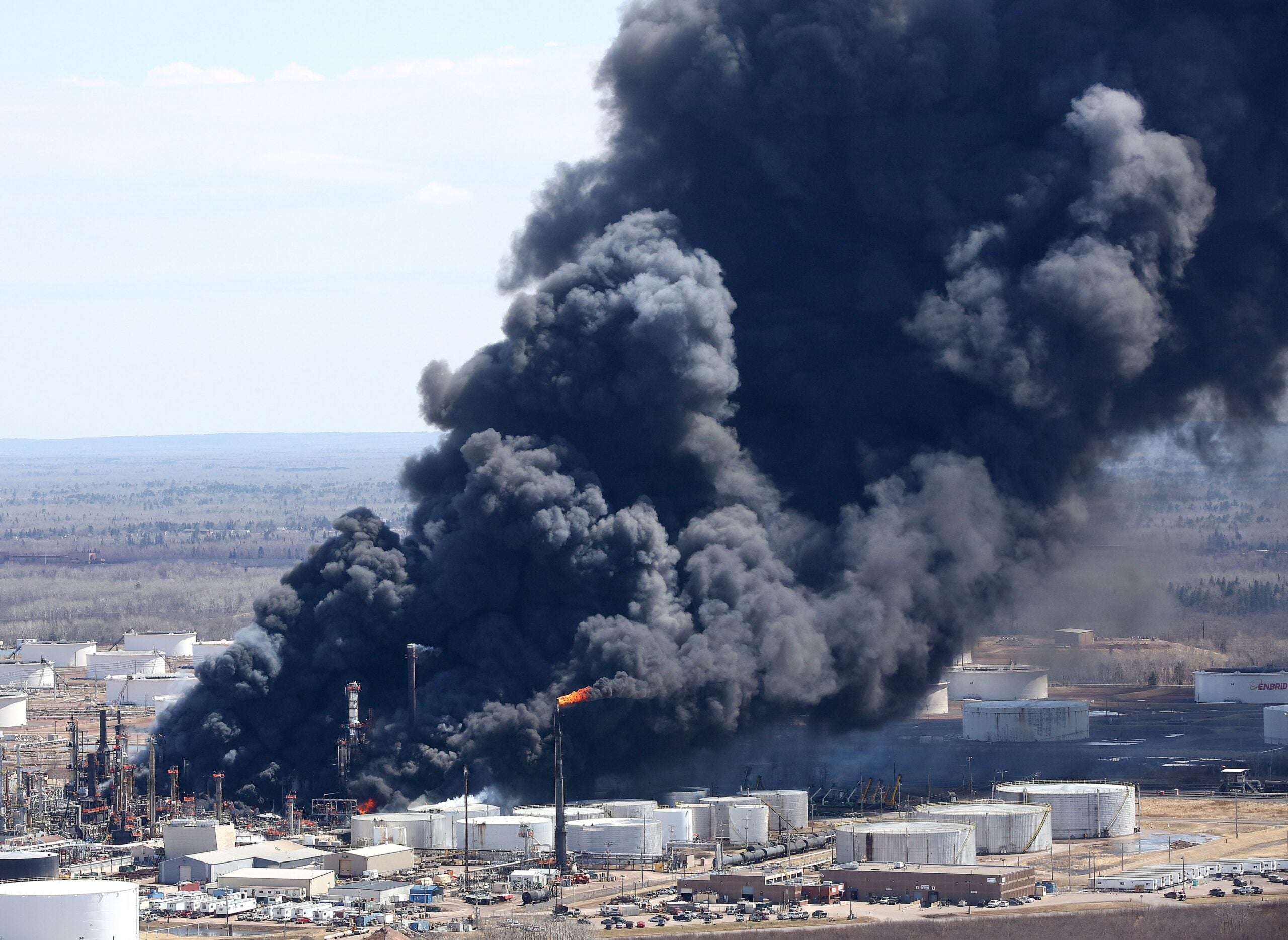
In 2018, more than 2,500 residents in the city of 27,000 evacuated over fears that hydrofluoric acid may be released. The highly toxic chemical is used at the refinery to produce high-octane gasoline, and can cause severe burns and lung damage. The company said the tank has operated safely for 60 years and never spilled during the incident. City leaders in Duluth and Superior called on former owner Husky Energy to remove the chemical from its operations, but officials said it was necessary to make the refinery economically viable.
As the refinery restarts, Cole said the company implemented safety upgrades to the hydrofluoric acid or HF unit.
“The new HF storage tank and rapid acid transfer system is there now, which can transfer HF out of the unit within minutes to an independent secure handling tank in the event of an emergency situation,” Cole said.
Other safety upgrades include seven remote-control water cannons, continuous video surveillance and the use of color-changing paint to detect any potential release.
The refinery also has a new control system to enhance safety during shutdowns, new training materials and simulators to cover a range of operating conditions. In addition, changes include a new power and distribution center, state-of-the-art slide valves and advanced instrumentation to monitor operations in the fluid catalytic cracking unit.
Paine said he’s hoping that restarting the refinery signals a return to normal.
“I’m hopeful that not only is the refinery reopening safer than it ever has been before, but that all the economic impacts of the refinery can now resume,” Paine said.
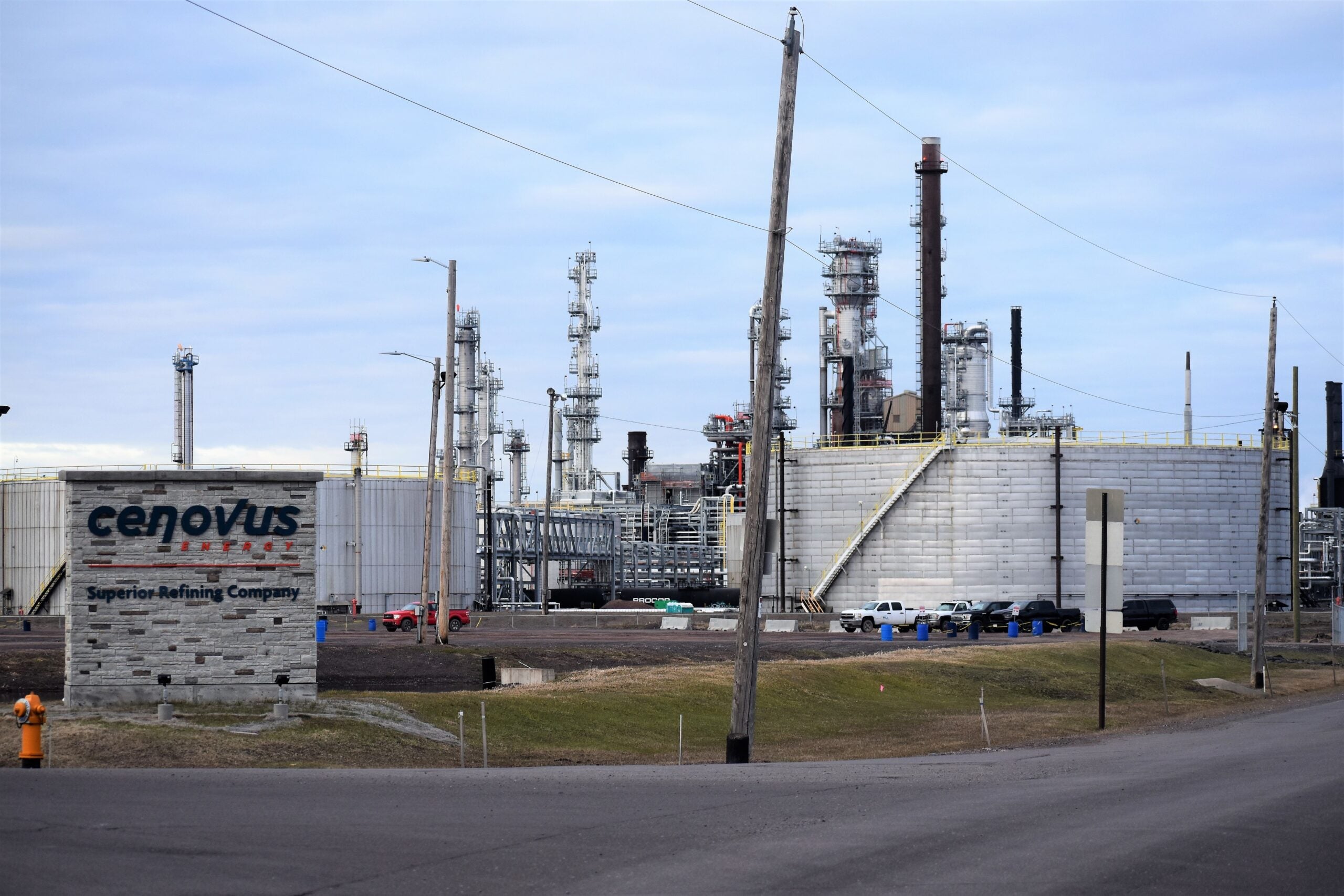
Danielle Kaeding/WPR
The refinery will have an annual payroll of about $30 million and contribute $2.2 million in property taxes. The company also spends around $48 million each year on contractors and vendors. Cole said thousands of contractors worked on the project over the last five years.
The facility is still preparing units for making finished products before full operations resume. The refinery typically produces gasoline, diesel and asphalt with a capacity of roughly 50,000 barrels per day.
Around 350 employees will now work at the refinery, which previously employed around 200 workers year-round. Cole said the additional workforce will ensure “adequate” coverage to comply with more protocols and procedures at the plant in the wake of the explosion.
The blast prompted multiple lawsuits against the refinery. In December, contract workers injured in the explosion reached a settlement with the company. In 2021, residents reached a roughly $1 million settlement agreement as part of a federal class-action lawsuit for lost wages and lodging due to the evacuation. An amended settlement was also reached with the state and federal government to offset emissions from the explosion.
Moving forward, Paine said the city is turning its attention from the refinery to the threat of toxic chemicals moved by rail.
“Superior has a lot of rail infrastructure. It is not as safe as it needs to be,” Paine said.
Paine said the East Palestine train derailment highlighted risks to communities nationwide. Roughly half the Ohio community’s population was evacuated when authorities ignited vinyl chloride to prevent an explosion. Residents have suffered from headaches or other health problems since.
In 1992, authorities evacuated around 50,000 people when a train derailment in Superior caused nearly 22,000 gallons of toxic compounds, including benzene, to spill into the Nemadji River.
Wisconsin Public Radio, © Copyright 2025, Board of Regents of the University of Wisconsin System and Wisconsin Educational Communications Board.

